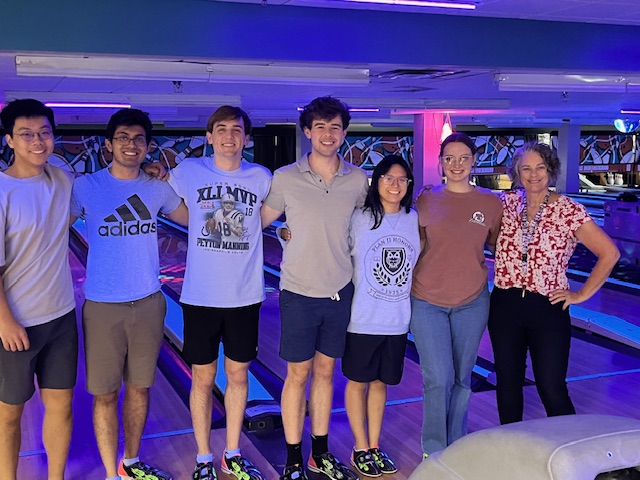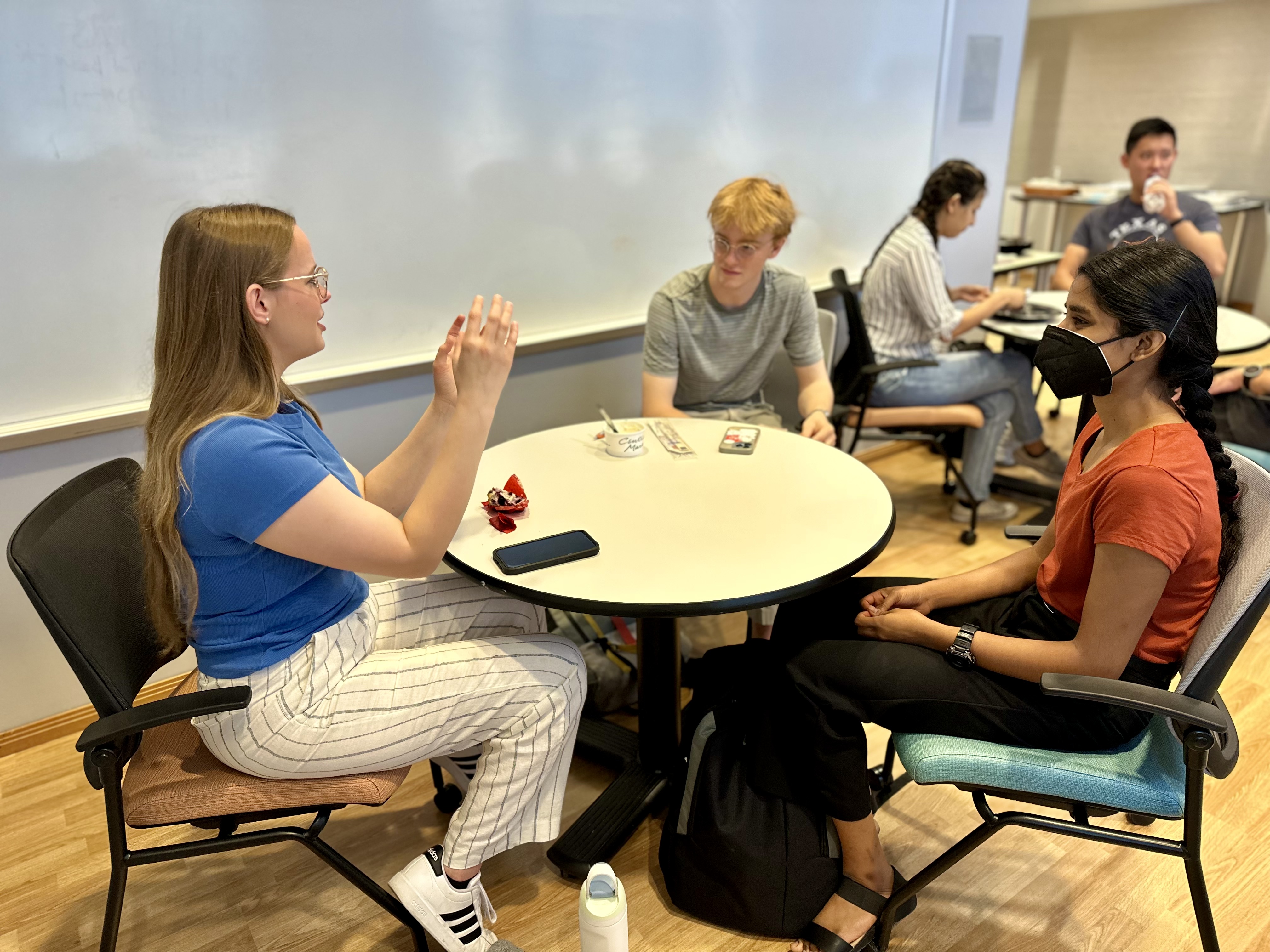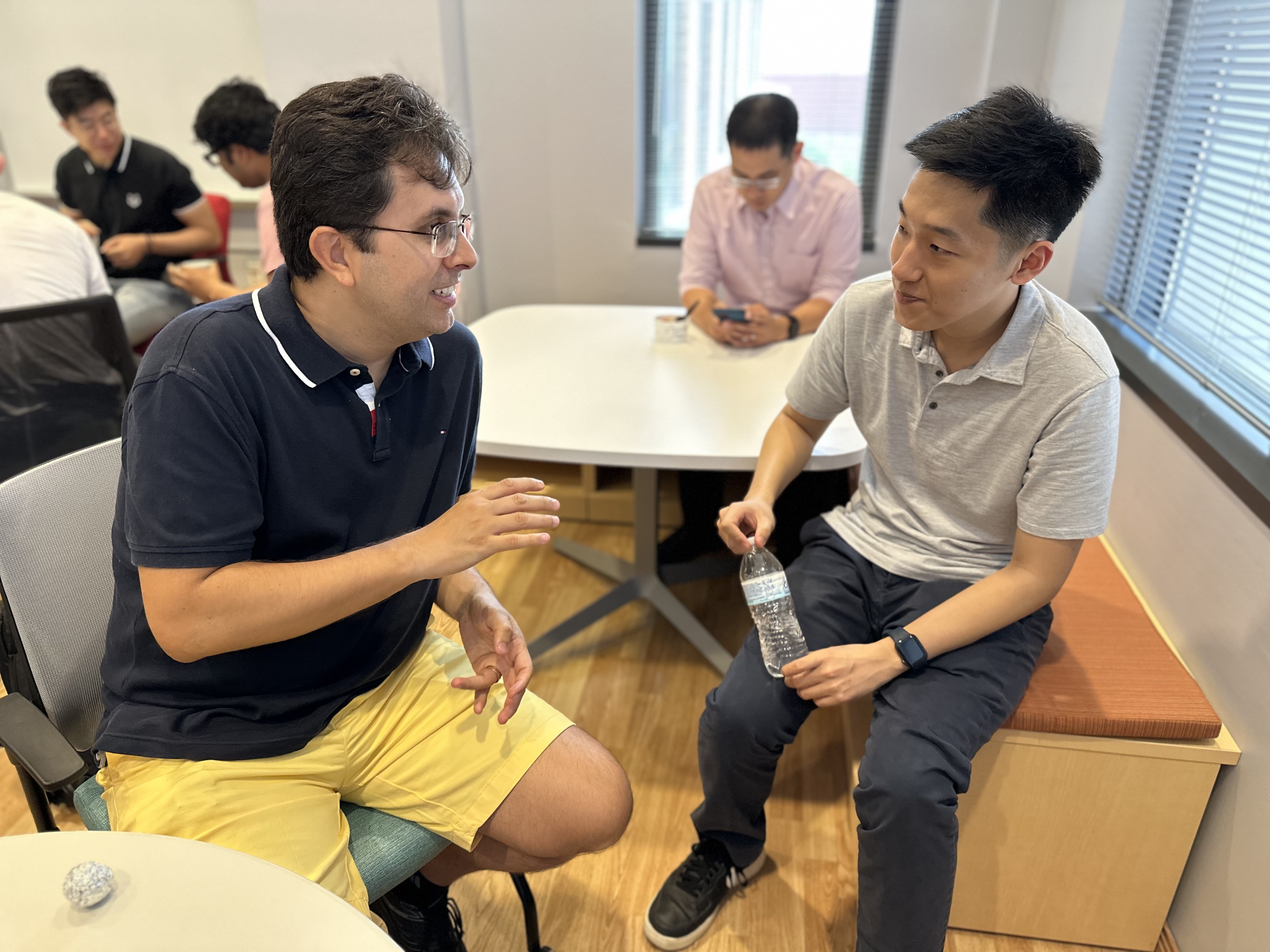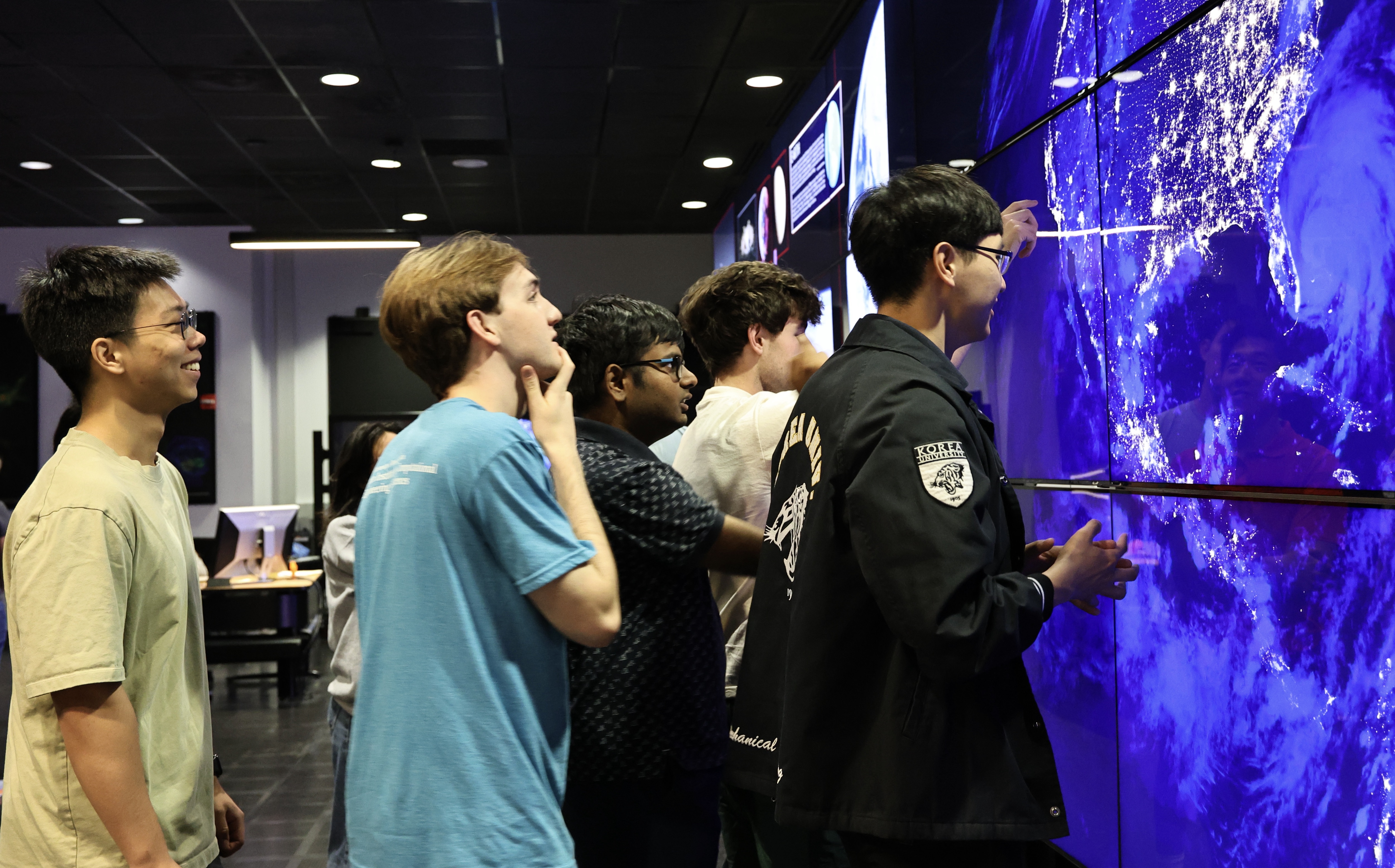Olivia Castillo, a physics honors and Plan II major at UT Austin, has been equally enthusiastic about her experience. “I joined Don Siegel's lab in January, and he recommended I apply to the Moncrief internship. I am so glad I did because I love getting to work on my research full-time! I have made so much progress.”
This summer’s schedule is packed with enriching activities, from the welcome breakfast and coffee hours to workshops on graduate school, academic publishing, and poster design. Social events, including bowling and board game nights, have fostered a sense of community among the interns.
“I like the cohort and enjoy the social activities,” said Olivia. “We recently went bowling, and even though I lost pretty badly, it was fun playing with other interns and getting a break from work. My favorite part was definitely the lunch with the Director of the Oden Institute, Karen Willcox. I loved getting to know her personally and receiving advice from someone so successful.”
Olivia is studying materials science, specifically the paddlewheel effect in solid ion conductors to better understand what makes good materials for solid-state batteries. “I like computational material science as a field because it is so broad, there are so many opportunities for positive social impact, and I get to apply abstract concepts that I learn in my physics classes.”
Cade Dulaney, an applied mathematics major at Texas A&M, shared his journey to the Moncrief Internship. “I was fortunate to work with Dr. Yankeelov and his lab last summer. We kept in touch, and he reached out to me with a link to the Moncrief Internship. After reading through the description, I discovered how amazing this opportunity could be. I learned very quickly how unique the Oden Institute was; a program that brings together experts from across disciplines to collaborate on cutting-edge research. As an applied mathematician with no clear path but a desire to apply math to whatever areas I find interesting, this stood out to me.”
Cade has continued his research with Dr. Yankeelov, developing and refining a model capable of predicting how tumors respond to various treatments. “This summer, I am applying Optimal Control Theory to find how much radiation and immunotherapy should be given, as well as when it should be given, to reduce a patients tumor and give them the best possible chance at a healthy life. The work is fascinating, challenging, and invigorating. There are days I forget to eat lunch because I get so focused on what I'm doing.”



